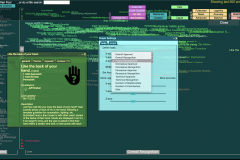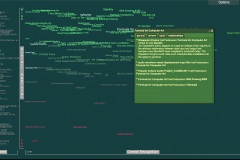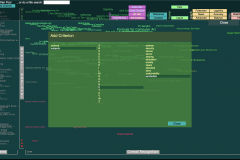The Pool
To quote the description on The Pool’s site:
Distraught over term papers downloaded from the Internet, English departments are budgeting for anti-plagiarism software like Turnitin and EduTie.com. Columbia University has restricted its students’ downloads to 1 megabyte per week. And the Recording Industry Association of America is slapping thousands of file-sharing undergraduates with million-dollar lawsuits. The lesson for students is clear: sharing information is bad.
The Pool offers a very different message. This online environment is an experiment in sharing art, text, and code–not just sharing digital files themselves, but sharing the process of making them. In place of the single-artist, single-artwork paradigm favored by the overwhelming majority of studio art programs and collection management systems, The Pool stimulates and documents collaboration in a variety of forms, including multi-author, asynchronous, and cross-medium projects.
The Pool was one of the first major projects I worked on at the University of Maine beginning in 2002. Despite being at the bleeding edge of interface tech at a time when Javascript was still mired in cross-browser hell, it is somehow still running today. It has been the site of more than 2700 projects and 11000 reviews created by students at UMaine and elsewhere. It’s mission of encouraging a pedagogy of sharing has led to over 1500 of those projects being created under CC-SA-NC licenses.
The video above is an introduction to The Pool by another of its principle creators, Jon Ippolito.



